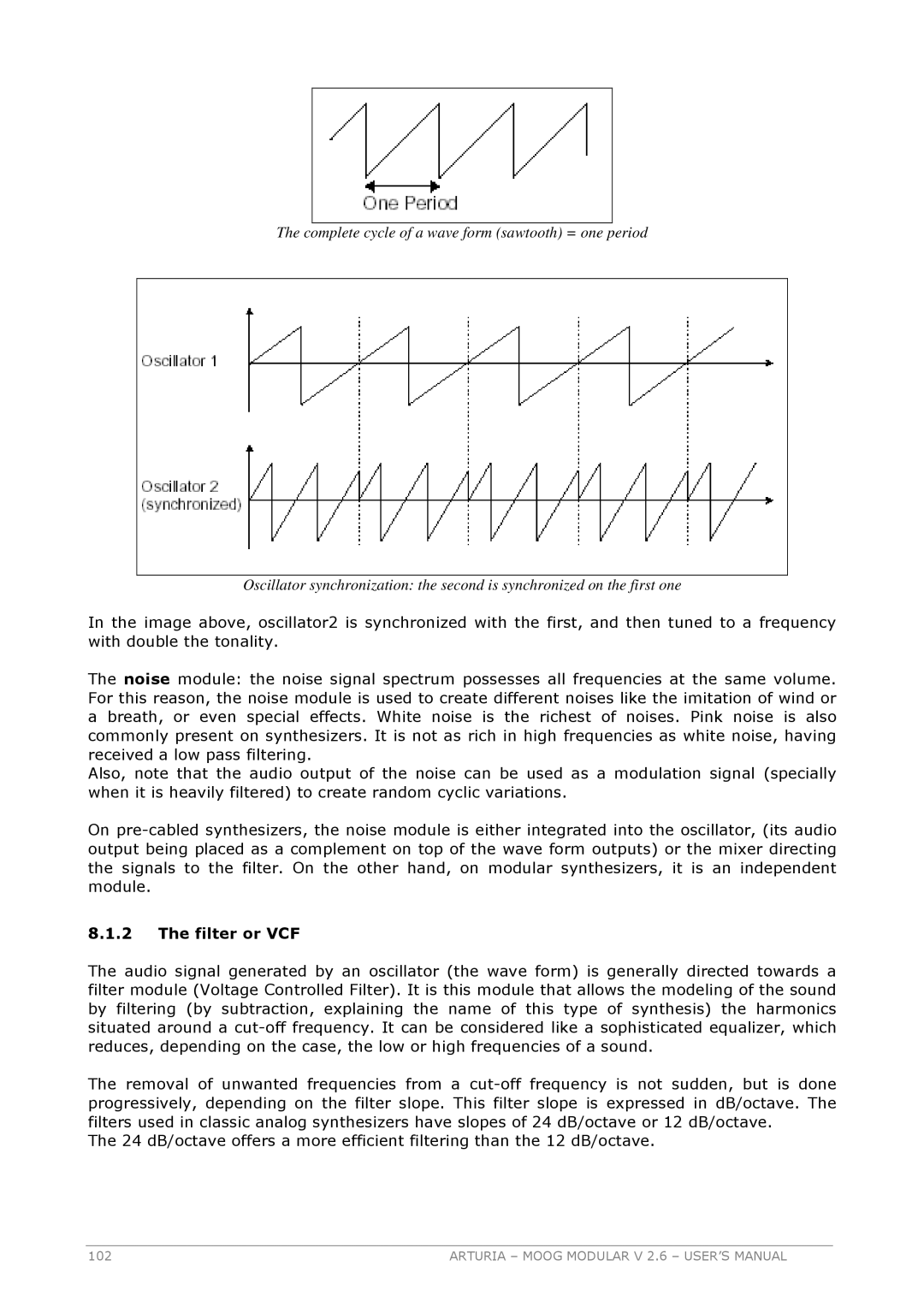
The complete cycle of a wave form (sawtooth) = one period
Oscillator synchronization: the second is synchronized on the first one
In the image above, oscillator2 is synchronized with the first, and then tuned to a frequency with double the tonality.
The noise module: the noise signal spectrum possesses all frequencies at the same volume. For this reason, the noise module is used to create different noises like the imitation of wind or a breath, or even special effects. White noise is the richest of noises. Pink noise is also commonly present on synthesizers. It is not as rich in high frequencies as white noise, having received a low pass filtering.
Also, note that the audio output of the noise can be used as a modulation signal (specially when it is heavily filtered) to create random cyclic variations.
On
8.1.2The filter or VCF
The audio signal generated by an oscillator (the wave form) is generally directed towards a filter module (Voltage Controlled Filter). It is this module that allows the modeling of the sound by filtering (by subtraction, explaining the name of this type of synthesis) the harmonics situated around a
The removal of unwanted frequencies from a
The 24 dB/octave offers a more efficient filtering than the 12 dB/octave.
102 | ARTURIA – MOOG MODULAR V 2.6 – USER’S MANUAL |
